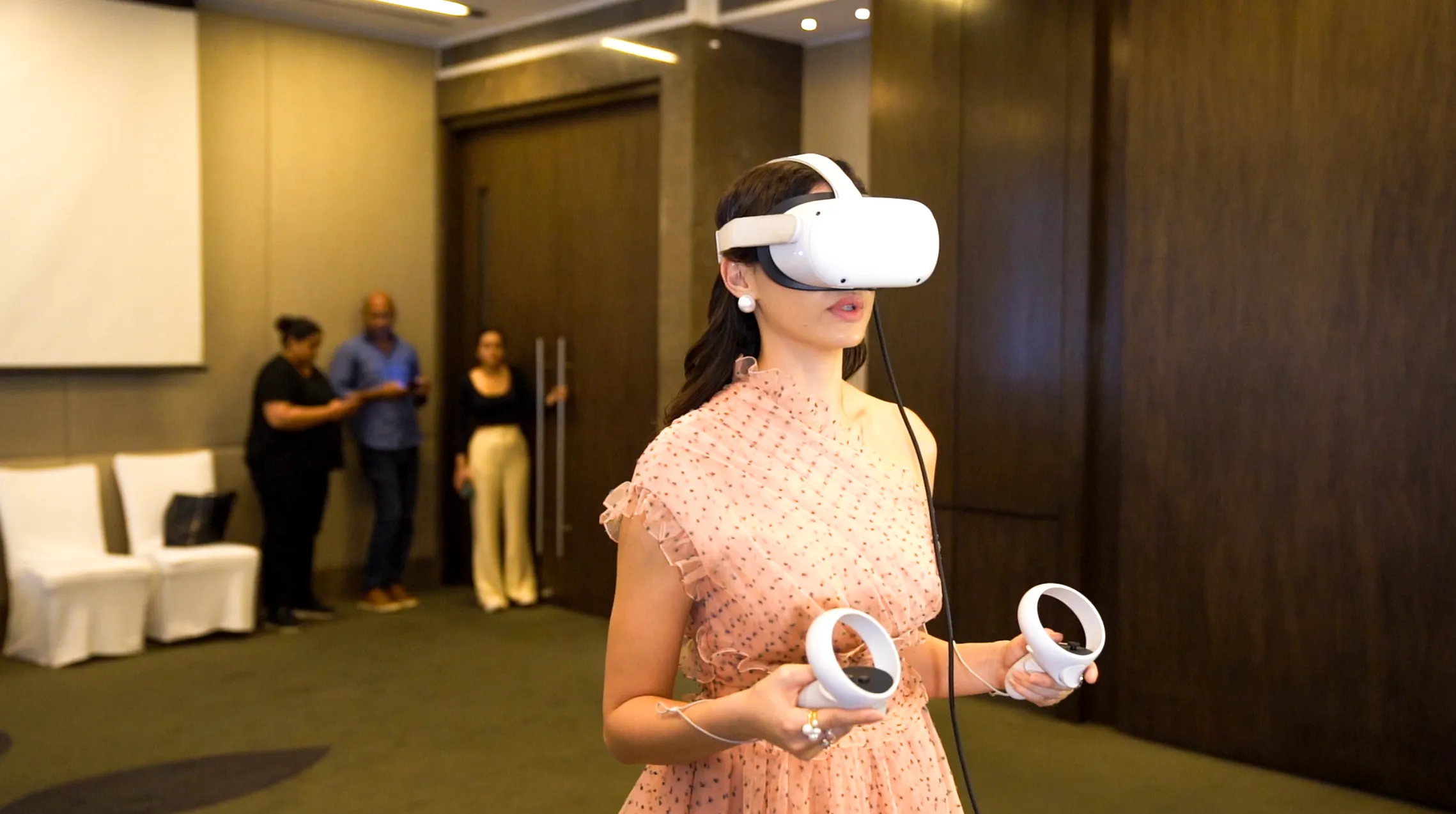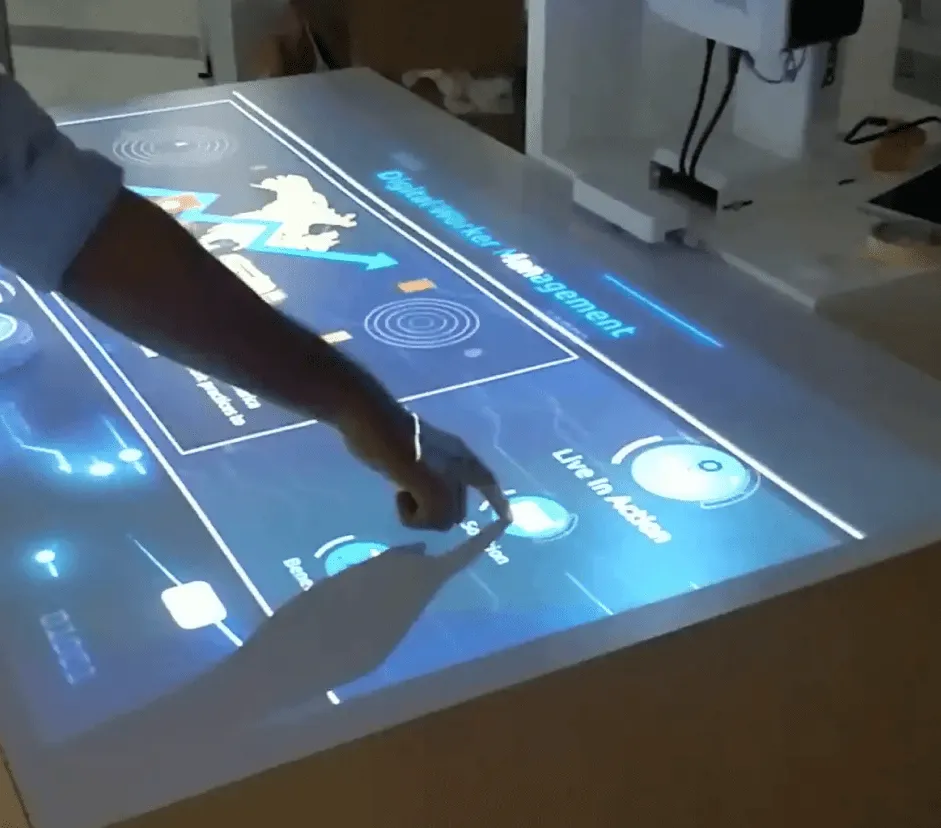Operationalizing Brand Storytelling Inside a Tech Experience Centre

The shift from traditional product showcases to immersive brand experiences has fundamentally changed how companies connect with their audiences. Today's most successful tech experience centres don't just display products—they create emotional journeys that transform visitors into brand advocates.
The challenge lies in execution. Many organizations struggle to translate their brand narrative into tangible, interactive experiences that genuinely resonate with sophisticated audiences. The difference between a memorable experience and a forgettable one often comes down to how effectively you operationalize your storytelling strategy.
Building Your Narrative Foundation
Every compelling experience centre starts with a crystal-clear understanding of your brand's core story. This goes far beyond corporate messaging or product features—you're crafting an emotional and aspirational journey that positions your visitors as protagonists.
The most effective approach involves establishing your company's foundational "why." What specific problem drove your founders to create this organization? What future are you actively building? These questions form the bedrock of authentic storytelling that connects with decision-makers who can distinguish between genuine innovation and marketing theatrics.
Consider your brand archetype carefully. Whether you embody the Explorer pushing boundaries, the Creator shaping possibilities, or the Sage democratizing knowledge, this psychological framework ensures consistency across every touchpoint. The archetype becomes your north star, guiding design decisions from lighting choices to interaction patterns.
Center the visitor experience around their challenges. Position your technology as the tool that empowers them to overcome obstacles and achieve their vision. This customer-centric approach transforms passive observation into active engagement.
Designing Immersive Narrative Environments
The physical and digital elements must work in harmony to create seamless storytelling. Each zone represents a chapter in your narrative, progressively building from broad concepts to specific solutions that address real business challenges.
Multi-sensory integration proves crucial here. Beyond visual displays, incorporate tactile surfaces that respond to touch, ambient lighting that shifts with narrative beats, and carefully designed soundscapes that reinforce emotional moments. These elements work subconsciously to create lasting impressions.
Projection mapping transforms static walls into dynamic canvases that can visualize data flows, showcase product evolution, or create atmospheric environments that support your narrative. Combined with gesture recognition and object detection, visitors become active participants rather than passive observers.
Holographic displays serve as powerful focal points for key story moments—imagine your CEO's vision statement delivered through a lifelike hologram, or product demonstrations that appear to float in mid-space. These technologies capture attention while delivering substantial content.
Interactive walls equipped with object recognition create opportunities for collaborative exploration. Visitors can physically manipulate elements to discover how your solutions work, making abstract concepts tangible and memorable.
Humanizing Technology Through Authentic Stories
The most sophisticated audiences—CEOs, innovation directors, and senior marketing leaders—connect with human impact stories rather than technical specifications. Your experience centre should showcase real customer transformations through carefully curated case studies that demonstrate measurable outcomes.
Feature the people behind your innovation. Video interviews with your engineering teams, recorded brainstorming sessions, and behind-the-scenes glimpses into your development process create emotional connections with your brand's human side. These elements build trust and credibility with visitors who make significant technology investments.
Social impact integration adds depth to your narrative. If your technology contributes to sustainability goals, humanitarian efforts, or societal advancement, weave these stories throughout the experience. Today's business leaders increasingly evaluate partners based on shared values and social responsibility.
Empowering Your Experience Ambassadors
Your team members function as the living embodiment of your brand story. They need comprehensive training that goes beyond product knowledge to include narrative mastery and authentic communication skills.
Develop guardrails rather than rigid scripts. Provide your staff with key messaging frameworks and brand guidelines, then empower them to communicate naturally within those boundaries. Authentic conversations create stronger connections than rehearsed presentations.
Your ambassadors should understand both the technical capabilities and business impact of every element within the centre. This dual expertise allows them to engage meaningfully with diverse visitor backgrounds and interests.
Measuring Impact and Optimizing Performance
Sophisticated measurement goes beyond basic attendance metrics to capture engagement depth and business impact. Track interaction patterns, session duration, and specific touchpoint engagement to understand which narrative elements resonate most effectively.
Pre- and post-visit surveys reveal changes in brand perception, purchase intent, and competitive positioning. Social media sentiment analysis provides ongoing feedback about how your story spreads beyond the physical experience.
Revenue attribution becomes crucial for justifying investment. Implement multi-touch attribution systems to track how experience centre visits influence the customer journey. Compare the lifetime value of centre visitors against other acquisition channels to demonstrate ROI.
Heat mapping technology reveals which zones capture attention and which areas need narrative strengthening. This data drives continuous optimization of both content and flow.
Real-World Excellence in Practice
Leading technology companies have mastered this integration. Apple's retail environments function as galleries where product interaction supports their simplicity and innovation narrative. Every design element reinforces their brand archetype while encouraging natural discovery.
Salesforce exemplifies customer-centric storytelling through their Trailblazer community showcases. Their approach positions customers as heroes while demonstrating platform capabilities through real success stories.
The future belongs to brands that can transform product demonstrations into memorable experiences that build lasting emotional connections. Success requires authentic storytelling, sophisticated technology integration, and meticulous execution across every touchpoint.
When you combine compelling narratives with advanced interactive technologies, you create environments where visitors don't just learn about your products—they experience your brand's vision for their future. This transformation from passive consumption to active participation drives the kind of engagement that influences purchase decisions and builds long-term loyalty. Ready to transform your brand narrative into an unforgettable experience? INK IN CAPS specializes in creating these sophisticated, technology-driven environments that connect with your most important audiences.
Contact Us Now:






.CNhas5IL_ZqBJiz.webp)


















